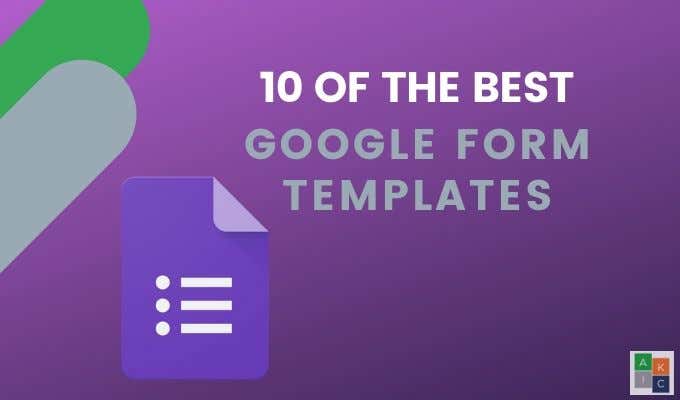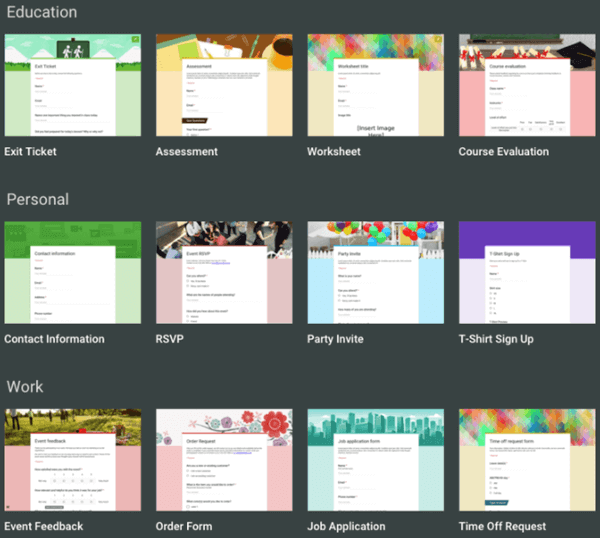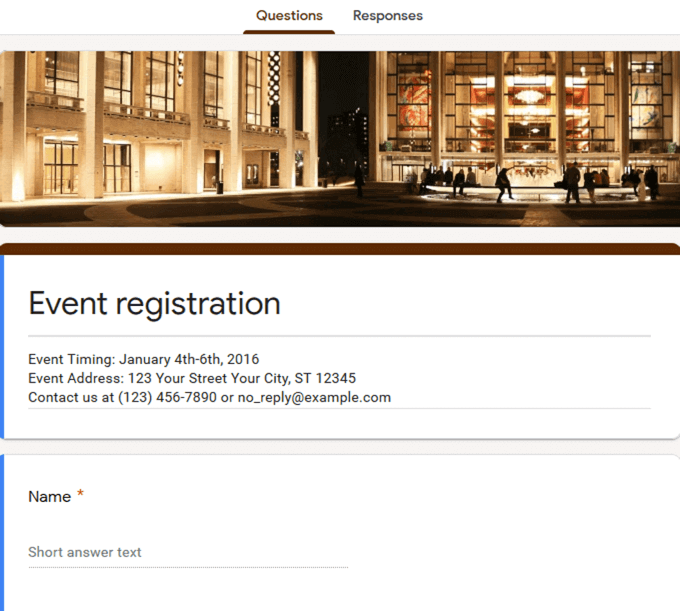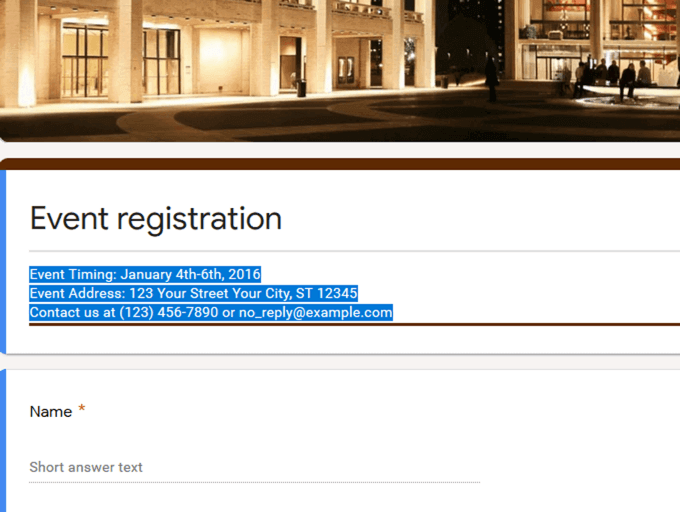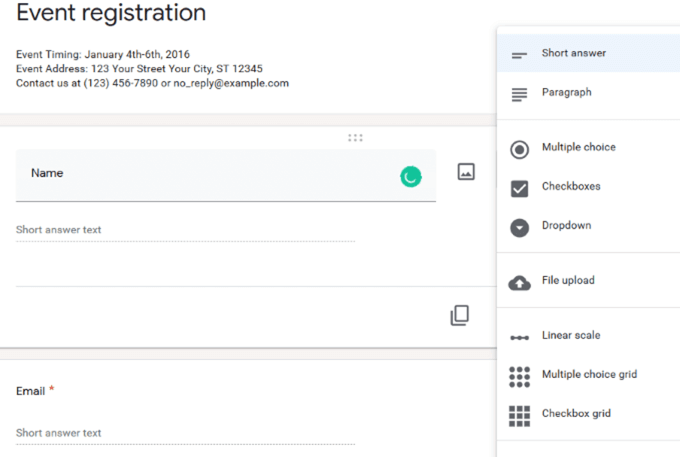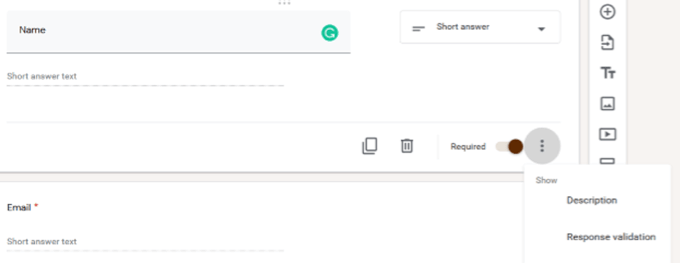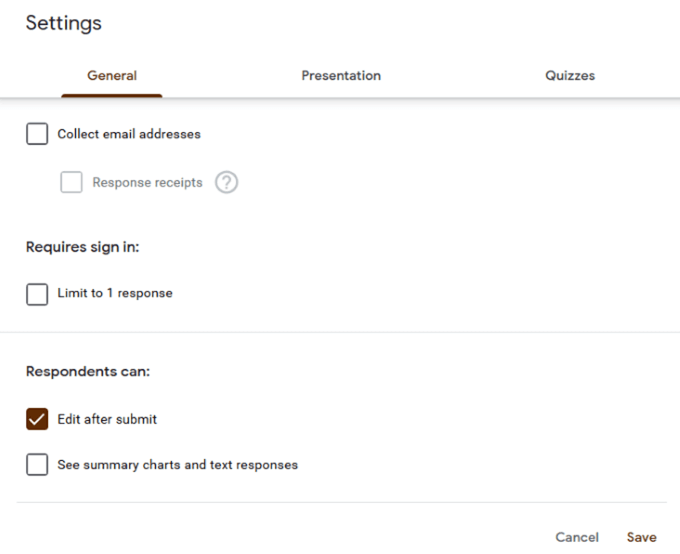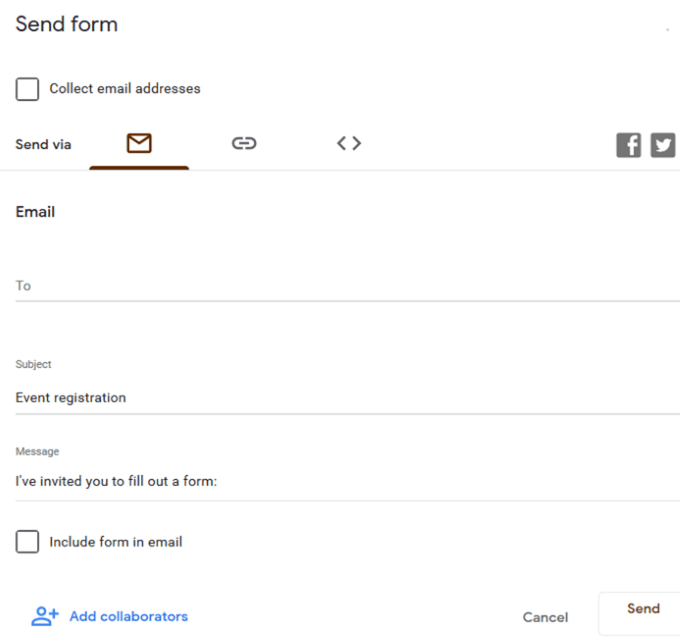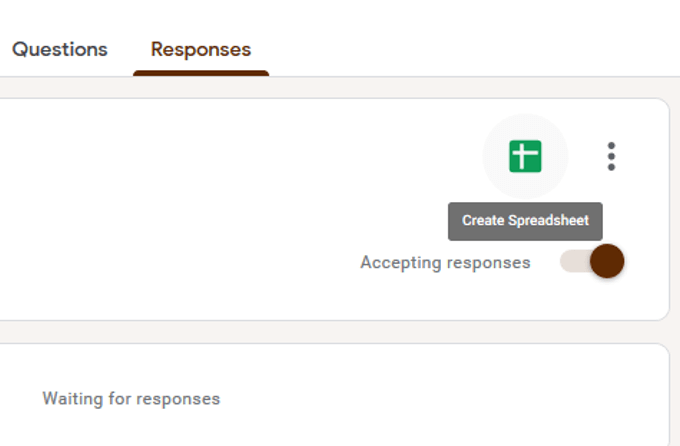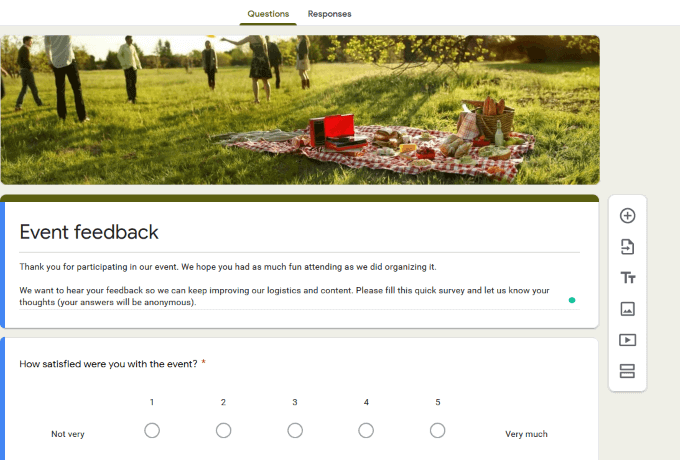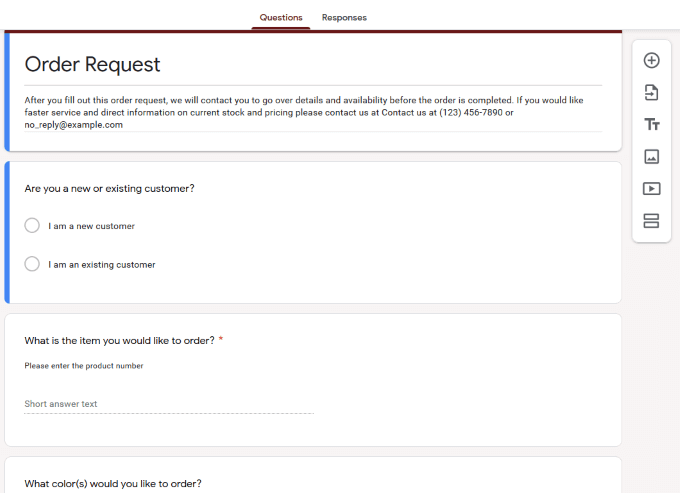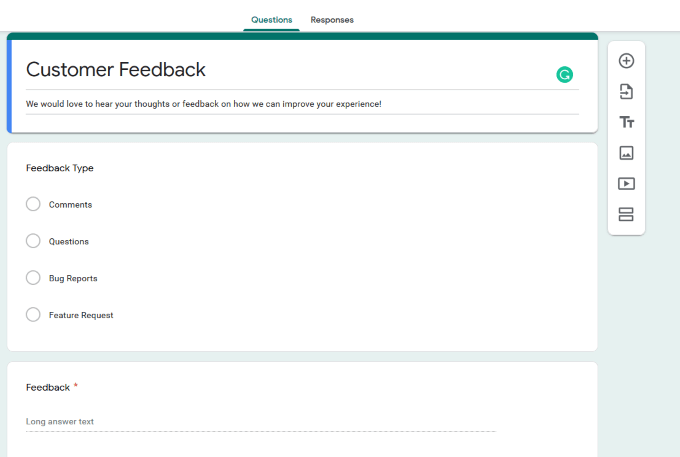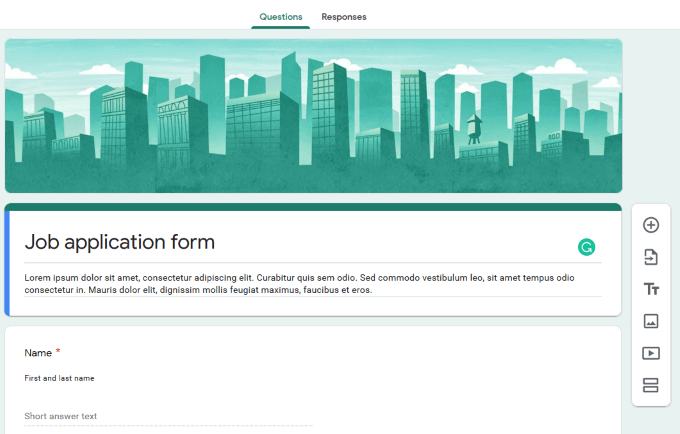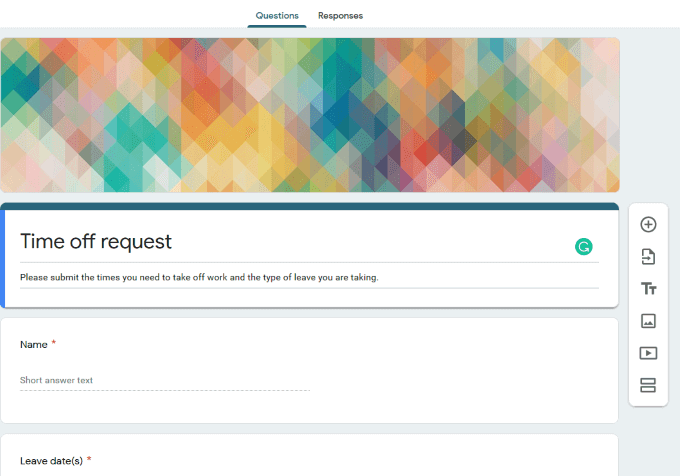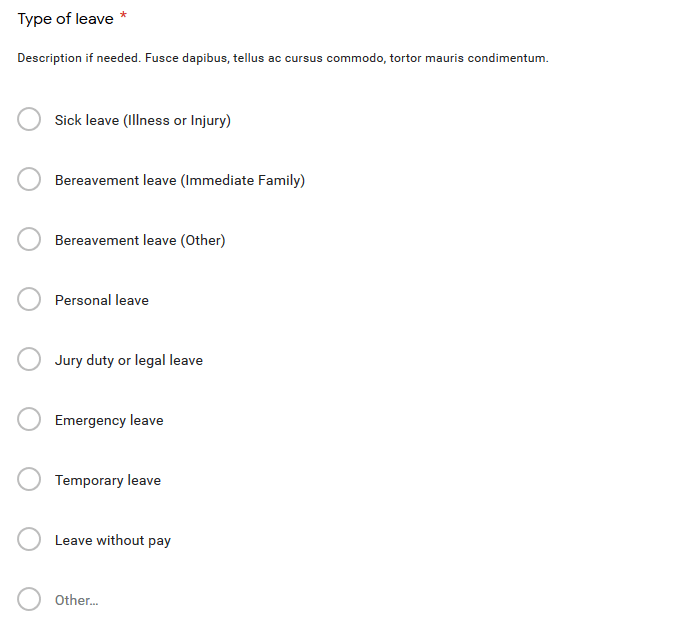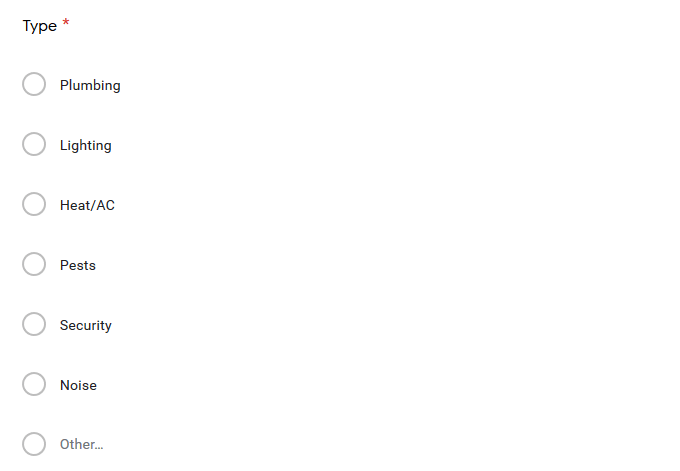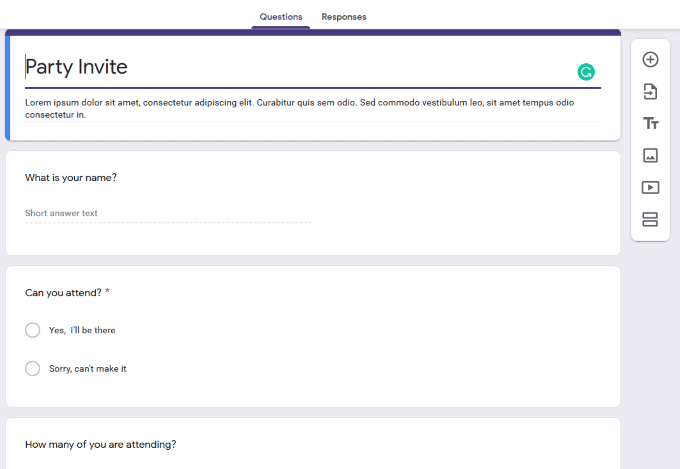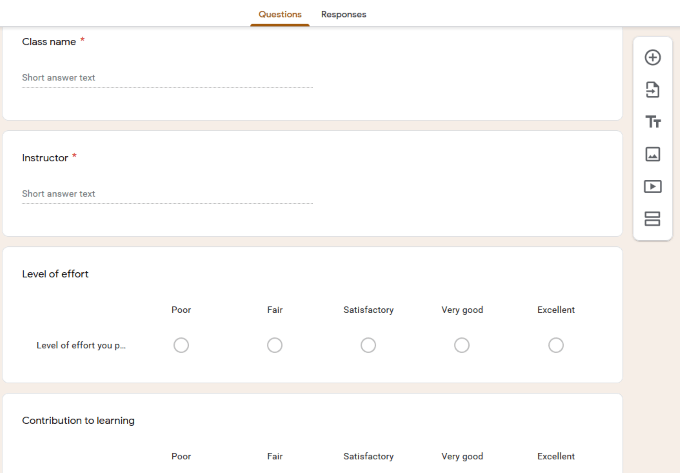Using form templates saves time by not having to start from scratch. Google Forms templates enable users to add or delete sections and make edits easily.
How To Find Google Forms Templates
To access Google Form templates, follow the steps below:
Log into your Google accountGo to Google FormsClick on Template Gallery
This will open the full gallery of templates broken into Education, Personal, and Work categories.
Which are the best templates from Google Forms? This article will address ten of them.
1. Contact Forms
Contact forms are the most basic and widely used form used to collect contact information of website visitors. Creating a contact form from Google’s form template is relatively simple. The customizable interface enables users to drag and drop form elements. Additionally, form parts can be organized where they appear based on events or actions. Since Google Forms integrate with Google Sheets, viewing data in a spreadsheet makes it easier to analyze.
2. Event Registration
Start by going to Google Forms and clicking on the Event Registration template. Some of the questions on the Google Form template may be appropriate to your event, while others may not. To change an item, click on it to expand your options. If you want to change the question, click on the suggested text and edit it to make it relevant. When you click on a field name, see the automatically generated recommended answer types from Google. At the bottom of each question box, you can duplicate, delete, make the question optional or required, add a description, or add criteria for response validation. Make sure to complete the settings so that you receive submissions. Click on the gear image in the top right-hand corner of the form. The general settings tab:
Allows you to automatically collect the email addresses of anyone who fills out the form (click the box)Limit the number of responses per person to 1Enables respondents to edit their submissionsLets you see a summary of text responses in a chart
The presentation setting tab shows you a pre-filled message that will display after a user submits the form. Use the suggested message or customize it for your event. To change the look of the form, you can edit the header image, theme color, background color, and font style. Send or share your form with recipients by email, embedding it on a web or landing page, or by sharing a link. See the information when people begin to respond by clicking on the Responses tab on the top of the form. You can also create a spreadsheet from the response tab by clicking on the green plus sign on the top right side and click Create a New Spreadsheet. Google forms for events are helpful for smaller events. However, if you are running a large event, they might not be the best choice because it can’t process payments. Additionally, on the day of the event, you must manually check off each participant from a printed attendees list.
3. Event Feedback Survey
After an event, it is valuable to know how satisfied attendees were to make improvements for future events. Google suggests questions and asks recipients to rate them, such as:
Satisfaction with the eventRelevancy and helpfulness for your jobKey takeaways from the event
All elements of the form, including the header, are customizable. Track responses on the form page and send responses to a spreadsheet in Google Sheets.
4. Order Forms
Businesses use order forms when ordering goods or services from external suppliers to ensure they receive what they ordered. Some of the suggested questions from Google include:
Are you a new or existing customer?Enter the product number of the item you want to orderProduct options such as color, size, and quantityContact information
Use Google Forms Templates editor to customize your order form for your business.
5. Customer Feedback
If you want your business to thrive, it is vital to keep your customers satisfied and happy. Customer feedback forms provide companies with information they need to maintain stellar customer service. Prepare a list of specific questions for your customers that will provide constructive feedback while avoiding vague responses. Following up on reasonable suggestions and concerns is vital to meet the needs and expectations of current customers and attract new ones.
6. Job Application
Using a template for job applications makes it easier for hiring managers to compare applicants. Edit and customize the questions to match the requirements of the position opening. By using the same format for all applications, it’s easier to compare the skills and experience of all applicants.
7. Time Off Request
One of the benefits of using Google Forms for time off requests is the ability to create a spreadsheet from submitted forms. Easily track requests from employees in the spreadsheet to make sure there is always coverage when needed. Include the reason for the request for time off to provide a way to track time off, such as sickness, personal, and bereavement.
8. Work Request
The Work Request templates are by default for niche service companies such as Heating/AC, Plumbing, and Pests. In addition to contact information, other suggested questions include:
PriorityDue dateMore details
The form can be edited and customized for any business providing products or services.
9. Party Invitations
If you are having a family or a business party, use the Google Party Invitation template to create a form. Besides asking obvious questions such as name and how many will attend, Google suggests asking what each person will be bringing to the party and if they have any dietary restrictions.
10. Course Evaluation
As with the customer and event feedback forms, educational institutions use course evaluations to assess the quality of the course content and the instructor.
Pros and Cons of Google Form Templates
Google Forms Templates makes it easy to design a form, distribute it, and gather the collected data. All the forms above follow the same process and steps. We outlined the details above for Event Registration forms. The process summary is as follows:
Choose a templateCustomize it for your needsSelect options for settingsPresentation tab shows a progress bar, enables shuffling question order, and the editing of the confirmation messageDistributing the form (Send form) via email, embedding on web or landing page, or sharing a linkViewing responses as they come in. View response data in a summary view in graphical format. Or, see a single respondent’s submitted form data.
Since Google Forms Templates are online tools, sharing and collaborating with multiple people on the same form is available in real-time. This is especially helpful for keeping track of event registrations and managing customer relationship lists. Additionally, Google offers basic conditional logic as a feature. This means respondents can automatically skip form sections based on the responses they select. However, if your needs are too complex, you might need a more sophisticated form builder. While Google provides some ability for logic questions, it is very basic and only works on specific question types. They won’t work well for more complicated survey needs with too many pages or questions. The graphic editor design features are limited and don’t have as many options as other form builders. However, you can’t beat the price so it’s worth your time to try using Google’s form templates and see if they fulfill your needs. How are you using Google Forms and Google Form Templates? Let us know in the comments.
